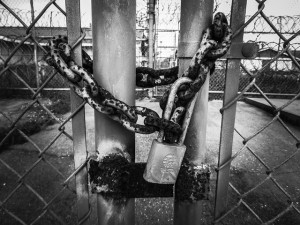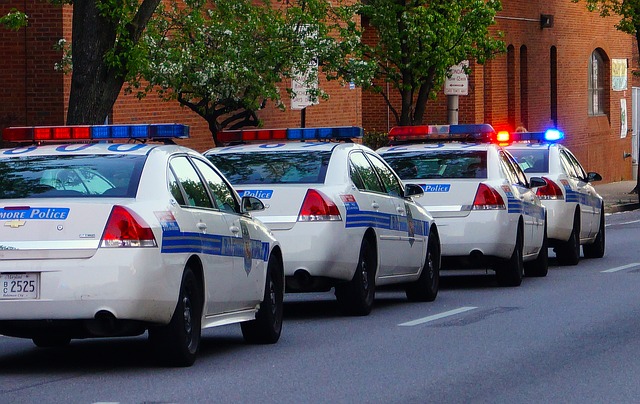 No jail or prison facility in the country should have a reputation. They should rarely appear in the news or be the topic of discussion. Rather, they should be like the best referees in football or the top umpires in baseball, who are seen but seldom heard from or remembered. The Baltimore City Detention Center it just the opposite, and has a terrible reputation as a dangerous and dirty facility that dates back almost 100 years. The facility survived calls for its closure in the 1930’s due to being outdated and unfit for living. There were riots at the jail in the 70’s, overcrowding which led to an unprecedented state takeover in the 90’s, and massive corruption over the last decade that led to 40 federal convictions of guards and inmates for drug distribution and racketeering from within the facility. And throughout these troubled times there were hundreds of complaints and lawsuits from inmates and the ACLU describing uninhabitable conditions. Yet the facility continued to remain open for business, and accepted defendants awaiting trial or sentenced to less than 18 months right up until last week when Governor Hogan decided to put an end to the disgrace that was the BCDC.
No jail or prison facility in the country should have a reputation. They should rarely appear in the news or be the topic of discussion. Rather, they should be like the best referees in football or the top umpires in baseball, who are seen but seldom heard from or remembered. The Baltimore City Detention Center it just the opposite, and has a terrible reputation as a dangerous and dirty facility that dates back almost 100 years. The facility survived calls for its closure in the 1930’s due to being outdated and unfit for living. There were riots at the jail in the 70’s, overcrowding which led to an unprecedented state takeover in the 90’s, and massive corruption over the last decade that led to 40 federal convictions of guards and inmates for drug distribution and racketeering from within the facility. And throughout these troubled times there were hundreds of complaints and lawsuits from inmates and the ACLU describing uninhabitable conditions. Yet the facility continued to remain open for business, and accepted defendants awaiting trial or sentenced to less than 18 months right up until last week when Governor Hogan decided to put an end to the disgrace that was the BCDC.
In a surprising and dramatic move, Hogan recently announced to reporters from a podium along Eager Street that he was closing the city jail immediately. The governor explained he would no longer allow the shamed facility to be a “black eye” upon the state, and scorned his predecessor for doing nothing to fix the longstanding problem. Some one thousand inmates will be moved to other jail facilities, which the governor described has having more than enough space. Defendants awaiting trial will likely stay at facilities within the city limits, while those already sentenced could be moved to nearby counties. Corrections officers and staff will be reassigned to other posts. Hogan definitively stated that the jail will not be rebuilt or refurbished, but will be torn down with no specific plan for the future of the site. The closure will save Maryland taxpayers roughly 10 to 15 million dollars per year, and effectively axe a half billion-dollar proposal from 2013 to rebuild a new jail at the same downtown location. More importantly it will put an end to an embarrassing run of corruption and maltreatment that became the standard at the jail. As of today most of the inmates still remain at the BCDC, but as many as 50 have bee transferred out and all should be moved within the next couple of weeks.
The closure is welcome news for friends and family of the inmates, and for their defense attorneys who were constantly reminded of the horrendous living conditions. While the inmates clearly suffered the most, even visiting the jail was a frustrating and uncomfortable process. Governor Hogan knew this, and rather than meet, discuss, and stall with lawmakers he took immediate action and did what needed to be done. Some lawmakers expressed displeasure with Hogan’s failure to consider a ten-year plan to revamp the facility that was recommended by a legislative commission. Not surprisingly it was the democratic lawmakers who voiced the public displeasure. These detractors politicized something that has absolutely nothing to do with politics, and their issue was likely the fact a leader from a different party overruled them. The city detention center was an absolute disgrace on all levels, and shuttering its doors for good was action that should have been taken years ago.
 Criminal Defense Lawyer Blog
Criminal Defense Lawyer Blog





 The shamed Baltimore City public school teacher charged with eleven theft crimes almost a year ago has now pled guilty to one count of felony theft scheme. This past week in the Circuit Court in downtown Baltimore a special statewide prosecutor announced the state would only pursue one of the counts in exchange for the guilty plea. The ex-principal will now avoid what would have been a lopsided trial, as the prosecutor had ample evidence connecting the defendant to almost $50,000 of missing school activity funds. The defendant, who is currently out on bail, was not sentenced at the plea hearing. Rather, sentencing has been set for early October on the one felony count that carries a maximum jail sentence of fifteen years. There is also the possibility of hefty fines and mandatory restitution for the charge, which is classified as theft scheme with a value of $10,000 to $100,000. This offense does not carry a minimum mandatory jail sentence, unlike the embezzlement count that was dropped.
The shamed Baltimore City public school teacher charged with eleven theft crimes almost a year ago has now pled guilty to one count of felony theft scheme. This past week in the Circuit Court in downtown Baltimore a special statewide prosecutor announced the state would only pursue one of the counts in exchange for the guilty plea. The ex-principal will now avoid what would have been a lopsided trial, as the prosecutor had ample evidence connecting the defendant to almost $50,000 of missing school activity funds. The defendant, who is currently out on bail, was not sentenced at the plea hearing. Rather, sentencing has been set for early October on the one felony count that carries a maximum jail sentence of fifteen years. There is also the possibility of hefty fines and mandatory restitution for the charge, which is classified as theft scheme with a value of $10,000 to $100,000. This offense does not carry a minimum mandatory jail sentence, unlike the embezzlement count that was dropped. The last couple of months have been quiet on the medical marijuana front, and as a result it did not take much of a pot story to produce headlines at a variety of Maryland news outlets. Last Friday a town planner for the Talbot County seat of Easton announced that the site of a former tool manufacturing plant would receive local zoning approval to become a marijuana growing facility. The planner decided that growing legal pot classifies as agriculture, which is proper in all areas of the Eastern Shore town, save for the historical downtown area. Keep in mind that this facility would strictly be for growing, and would have no dispensing capability, or relationship to any potential local dispensary. Whether this actually turns out to be a story of substance remains to be seen, as the growing company who pitched the town planner has not yet received a state license to grow medical pot. But all the downtime created by the Maryland Medical Marijuana Commission’s methodical pace has left the people and consequently the media in a jumpy mood; nearly any small development will make headlines at this point.
The last couple of months have been quiet on the medical marijuana front, and as a result it did not take much of a pot story to produce headlines at a variety of Maryland news outlets. Last Friday a town planner for the Talbot County seat of Easton announced that the site of a former tool manufacturing plant would receive local zoning approval to become a marijuana growing facility. The planner decided that growing legal pot classifies as agriculture, which is proper in all areas of the Eastern Shore town, save for the historical downtown area. Keep in mind that this facility would strictly be for growing, and would have no dispensing capability, or relationship to any potential local dispensary. Whether this actually turns out to be a story of substance remains to be seen, as the growing company who pitched the town planner has not yet received a state license to grow medical pot. But all the downtime created by the Maryland Medical Marijuana Commission’s methodical pace has left the people and consequently the media in a jumpy mood; nearly any small development will make headlines at this point. The FBI and the Montgomery County Police recently announced the break up of a large-scale drug ring operating out of a residential area near Rockville. Monday during the early morning hours, as many as 100 state, local and federal law enforcement officers raided numerous townhomes in the Bel Pre development, as well as a business in Prince George’s County. The raids yielded a narcotics, multiple firearms, and over $70,000 in cash. All told 18 people were arrested, and now the defendants face felony drug charges in federal court. All but one of the defendants resides in Maryland, with the non-resident being from Pennsylvania. The defendants are charged with conspiracy to distribute heroin and cocaine, and could face other charges based on the evidence that was seized.
The FBI and the Montgomery County Police recently announced the break up of a large-scale drug ring operating out of a residential area near Rockville. Monday during the early morning hours, as many as 100 state, local and federal law enforcement officers raided numerous townhomes in the Bel Pre development, as well as a business in Prince George’s County. The raids yielded a narcotics, multiple firearms, and over $70,000 in cash. All told 18 people were arrested, and now the defendants face felony drug charges in federal court. All but one of the defendants resides in Maryland, with the non-resident being from Pennsylvania. The defendants are charged with conspiracy to distribute heroin and cocaine, and could face other charges based on the evidence that was seized. News trucks and National Guard Humvees are no longer lining the streets of Baltimore, but the city is still experiencing elevated crime levels and widespread violence following riots that generated worldwide attention. Forty-two people were murdered within city limits last month, the highest monthly total in over 40 years, and millions of dollars worth of narcotics have fallen into the hands of drug dealers in the last few weeks. The murder rate is attributed by some as a direct result of a lower police presence in high crime areas, exactly the opposite of what is needed. Police in the tensest areas such as the western district of Baltimore City have allegedly shifted their priority to self-preservation rather than protecting the public. According to an anonymous supervising officer who was interviewed on CNN, cops in the western district are basically ignoring orders from the police leadership to vigorously patrol, and are just simply responding to 911 calls. This passive approach is likely causing a sense of lawlessness in certain areas, and in turn wrongdoers are becoming bolder. Although the police commissioner has no plans to step down, there is growing discontent about the department’s leadership going forward. One city councilman has publically called for a new police commissioner, stating that he knows rank and file officers have lost confidence and respect for their commander. This environment has officer moral and motivation at an all time low, and city residents are suffering the consequences.
News trucks and National Guard Humvees are no longer lining the streets of Baltimore, but the city is still experiencing elevated crime levels and widespread violence following riots that generated worldwide attention. Forty-two people were murdered within city limits last month, the highest monthly total in over 40 years, and millions of dollars worth of narcotics have fallen into the hands of drug dealers in the last few weeks. The murder rate is attributed by some as a direct result of a lower police presence in high crime areas, exactly the opposite of what is needed. Police in the tensest areas such as the western district of Baltimore City have allegedly shifted their priority to self-preservation rather than protecting the public. According to an anonymous supervising officer who was interviewed on CNN, cops in the western district are basically ignoring orders from the police leadership to vigorously patrol, and are just simply responding to 911 calls. This passive approach is likely causing a sense of lawlessness in certain areas, and in turn wrongdoers are becoming bolder. Although the police commissioner has no plans to step down, there is growing discontent about the department’s leadership going forward. One city councilman has publically called for a new police commissioner, stating that he knows rank and file officers have lost confidence and respect for their commander. This environment has officer moral and motivation at an all time low, and city residents are suffering the consequences. Toward the end of the 2015 legislative session the General Assembly convincingly passed a modification of the marijuana decriminalization law. The modification served to cure an inherent defect in the 2014 decriminalization law by removing the possession of marijuana paraphernalia from the catalog of CDS criminal offenses. It was a logical and necessary fix to the ambiguous situation created by the 2014 law, which punished the possession of pot only by a civil fine, yet still punished possession of the device used to ingest the pot with criminal sanctions. This modification was expected to take effect in October of this year, thus ending the ambiguity and giving law enforcement and prosecutors more time to deal with actual issues of public safety. The only hurdle was an approval from our recently sworn governor, which at the time seemed like a forgone conclusion. But this past week Hogan flexed his socially conservative muscle and vetoed the bill, baffling some lawmakers and angering marijuana reform advocates all over the country. So for at least another year, the only thing criminal about smoking a joint Maryland is the rolling paper that keeps it together.
Toward the end of the 2015 legislative session the General Assembly convincingly passed a modification of the marijuana decriminalization law. The modification served to cure an inherent defect in the 2014 decriminalization law by removing the possession of marijuana paraphernalia from the catalog of CDS criminal offenses. It was a logical and necessary fix to the ambiguous situation created by the 2014 law, which punished the possession of pot only by a civil fine, yet still punished possession of the device used to ingest the pot with criminal sanctions. This modification was expected to take effect in October of this year, thus ending the ambiguity and giving law enforcement and prosecutors more time to deal with actual issues of public safety. The only hurdle was an approval from our recently sworn governor, which at the time seemed like a forgone conclusion. But this past week Hogan flexed his socially conservative muscle and vetoed the bill, baffling some lawmakers and angering marijuana reform advocates all over the country. So for at least another year, the only thing criminal about smoking a joint Maryland is the rolling paper that keeps it together. Drug and alcohol related deaths have increased statewide over the past few years, and the jump from 2013 to 2014 was so significant that the governor has declared a health crisis in Maryland. The state health department recently released its annual report for this past year, and the numbers are frightening to say the least. Over 1,000 people died directly from drug and alcohol overdoses last year, which represents a 21 percent increase from 2013. More than half of those deaths were the result of heroin, a narcotic whose popularity has been increasing exponentially over the past decade. In his first year of office, Governor Hogan has made it a priority to combat drug overdoses, and he has taken proactive measures such as approving a bill expanding the use of Naloxone, an opioid antagonist that reverses the effects of heroin. Many police officers statewide, including those in Anne Arundel County, now carry this powerful life saving drug. Chances are that more departments will add it to their officer’s essential police equipment in the future. Ultimately though, the governor’s focus will be on breaking up heroin trafficking rings, and on educating the youth about the dangers of even one single dose this dangerous drug.
Drug and alcohol related deaths have increased statewide over the past few years, and the jump from 2013 to 2014 was so significant that the governor has declared a health crisis in Maryland. The state health department recently released its annual report for this past year, and the numbers are frightening to say the least. Over 1,000 people died directly from drug and alcohol overdoses last year, which represents a 21 percent increase from 2013. More than half of those deaths were the result of heroin, a narcotic whose popularity has been increasing exponentially over the past decade. In his first year of office, Governor Hogan has made it a priority to combat drug overdoses, and he has taken proactive measures such as approving a bill expanding the use of Naloxone, an opioid antagonist that reverses the effects of heroin. Many police officers statewide, including those in Anne Arundel County, now carry this powerful life saving drug. Chances are that more departments will add it to their officer’s essential police equipment in the future. Ultimately though, the governor’s focus will be on breaking up heroin trafficking rings, and on educating the youth about the dangers of even one single dose this dangerous drug.